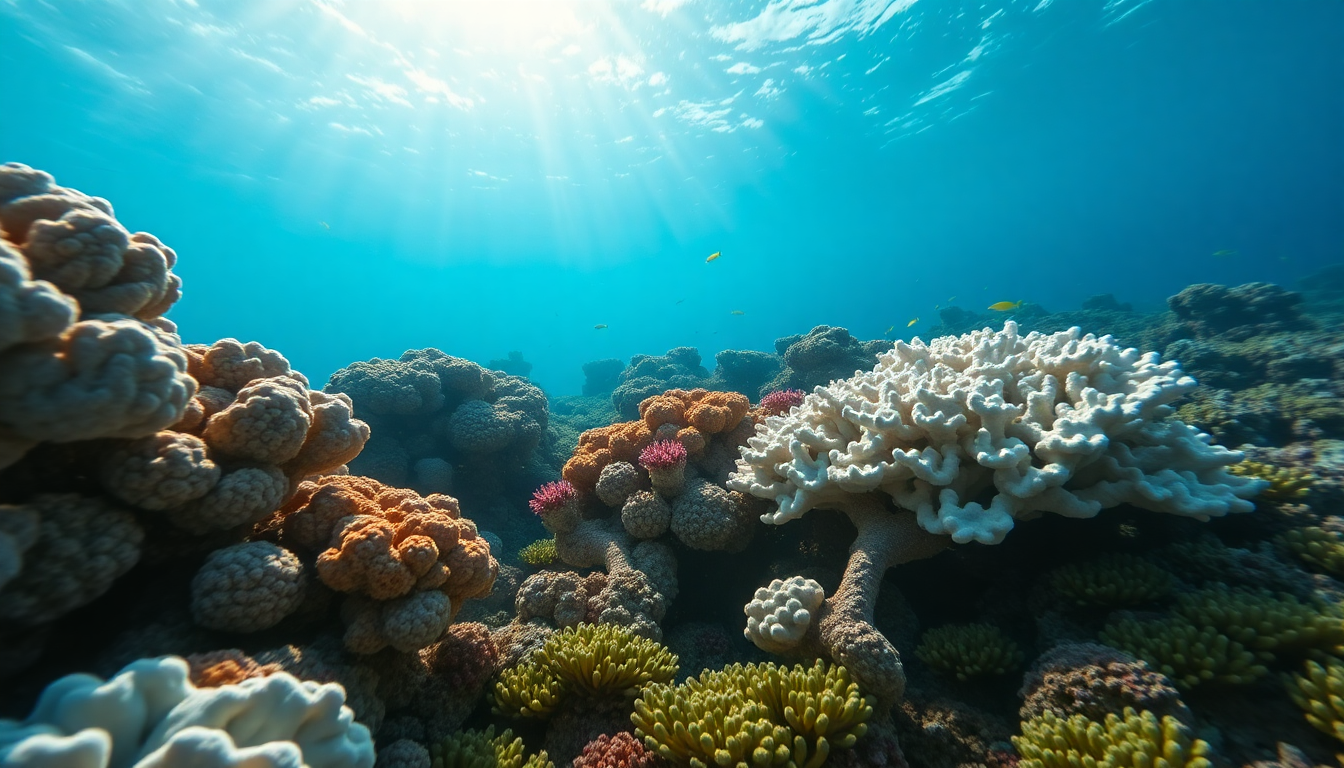Table of Contents
The Great Barrier Reef, often celebrated as the world’s largest living structure, is currently facing some serious challenges, mainly due to climate change. A recent report from the Australian Institute of Marine Science (AIMS) paints a troubling picture, revealing a record decline in coral health primarily driven by climate-induced heat stress.
But what does this mean for the reef’s rich biodiversity and global marine ecosystems? Let’s dive deeper.
Coral Bleaching and Its Implications
Have you ever heard of coral bleaching? Well, the Great Barrier Reef just experienced its most extensive bleaching event on record in 2024.
This happens when corals, stressed by high temperatures, expel the algae that live in their tissues, leaving them stark white and struggling to survive. According to AIMS, coral cover in the southernmost regions of the reef has dropped by almost one-third, with only 26.9 percent remaining.
This marks the most significant decline in coral health since monitoring began nearly four decades ago.
The fallout from this bleaching is severe. Coral reefs are not just pretty underwater landscapes; they provide essential habitats for over 1,500 species of fish and around 4,000 types of molluscs.
They also act as natural barriers against coastal erosion and bring in economic benefits through tourism and fisheries. As AIMS CEO, Professor Selina Stead, pointed out, the increasing frequency and intensity of mass bleaching events are alarming signs that our environment is deteriorating.
Isn’t it concerning to think about how this could impact our oceans and the life within them?
Factors Driving Coral Decline
What’s causing this coral decline? While climate change is the biggest culprit, several other factors play a role. Rising ocean temperatures have a devastating impact on coral health.
AIMS reports that 93 percent of the excess heat from the atmosphere has been absorbed by our oceans, resulting in record-high temperatures. Plus, local issues like pollution and overfishing only worsen the situation, making it essential to tackle these challenges in a comprehensive way.
Designated as a UNESCO World Heritage Site, the Great Barrier Reef is recognized for its global importance. Yet, despite its status, the Australian government has hesitated to label it as ‘in danger,’ fearing the economic repercussions for tourism. This raises an important question: should economic interests take precedence over environmental conservation? As the reef continues to suffer from threats like fossil fuel exports and industrial activity, it’s a debate we can’t afford to ignore.
The Path Forward: Solutions and Recommendations
So, what can we do to help the Great Barrier Reef? Experts agree that addressing these challenges requires a multifaceted approach. First and foremost, significant reductions in greenhouse gas emissions are essential for coral reefs to have a fighting chance. Transitioning to low- and zero-emission alternatives in major fossil fuel-exporting countries is crucial. Additionally, implementing stricter regulations on climate pollutants, especially methane, can help mitigate the immediate effects of climate change.
We also need local management strategies that focus on reducing pollution and enhancing the resilience of coral ecosystems. Promoting sustainable tourism and responsible fishing practices is vital for the reef’s overall health. Engaging local communities in conservation efforts and raising awareness about the importance of the Great Barrier Reef can foster a collective sense of responsibility for its preservation. How can we encourage more people to get involved?
As we look ahead, it’s essential to recognize that the fate of the Great Barrier Reef mirrors broader environmental trends. The urgency of the situation cannot be overstated; the time for action is now. Only through concerted efforts at local, national, and global levels can we hope to protect this irreplaceable marine treasure and the diverse life it supports. Are you ready to be part of the solution? Together, we can make a difference.





